We are excited to share an exclusive email interview with biologist, conservationist, and NYFA Documentary Filmmaking alum Valentine Rosado. Check out his impressive work in Belize, his insights on documentary filmmaking within the context of conservation, and more.
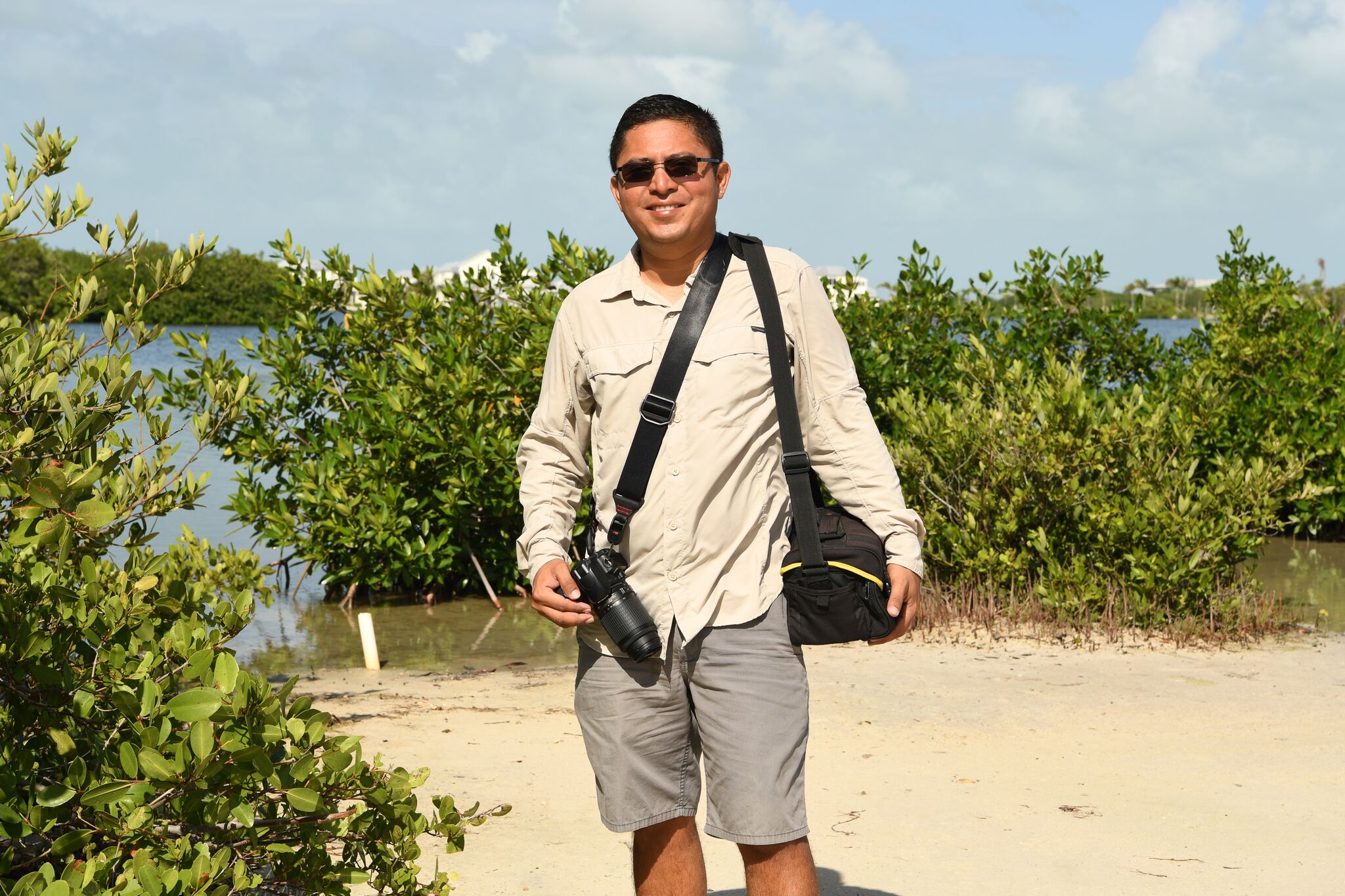
NYFA: First, can you tell us a little bit about yourself and your environmental work?
VR: I live in Belize with my wife and daughter. We found out we were expecting a baby only days before I went to NYFA and we had already decided to pass on on the course so that my wife would not go through her first phase of the pregnancy alone. After lots of contemplating we decided to make it work.
I have worked on a multitude of conservation projects focused on protected areas and their benefits to communities. One of my areas of special interest is mangrove reforestation as a form of ecosystem-based adaptation. The idea is that we are able to reinforce coastlines against erosion and climatic impacts by integrating mangroves with coastal planning. The dialogue between preservation and development is most often a polarizing one, but I believe that scientists play a crucial role in facilitating the integration of sound sustainable practices into private sector development.
I recently founded Grassroots Belize with my wife. It is a private consulting firm, where we now combine our qualifications and experience to work on conservation projects that instill meaningful change for the environment and the communities that depend on them.
I have done volunteer work throughout my career and pro bono work is still a big priority for us. We work with several community-based organizations throughout Belize by providing technical support where we can. In 2016 and 2017, 30 percent of our time was dedicated to pro bono work and 25 percent of our net revenue was contributed to charitable projects.
NYFA: Can you tell us how the WWF Professional Development Grant came about for you?
VR: We have been supporting a local community-based organization with their education and advocacy program. Fragments of Hope Belize works with volunteer fishers and tour guides in southern Belize and has out-planted more than 90,000 corals since 2006 — and that number grows significantly every year.
Through our work with FoH, I applied for a WWF-EFN professional development grant to participate in the NYFA documentary filmmaking course. I believed that specialized training in documentary filmmaking would greatly enhance our ability to present our stories to the wider public.
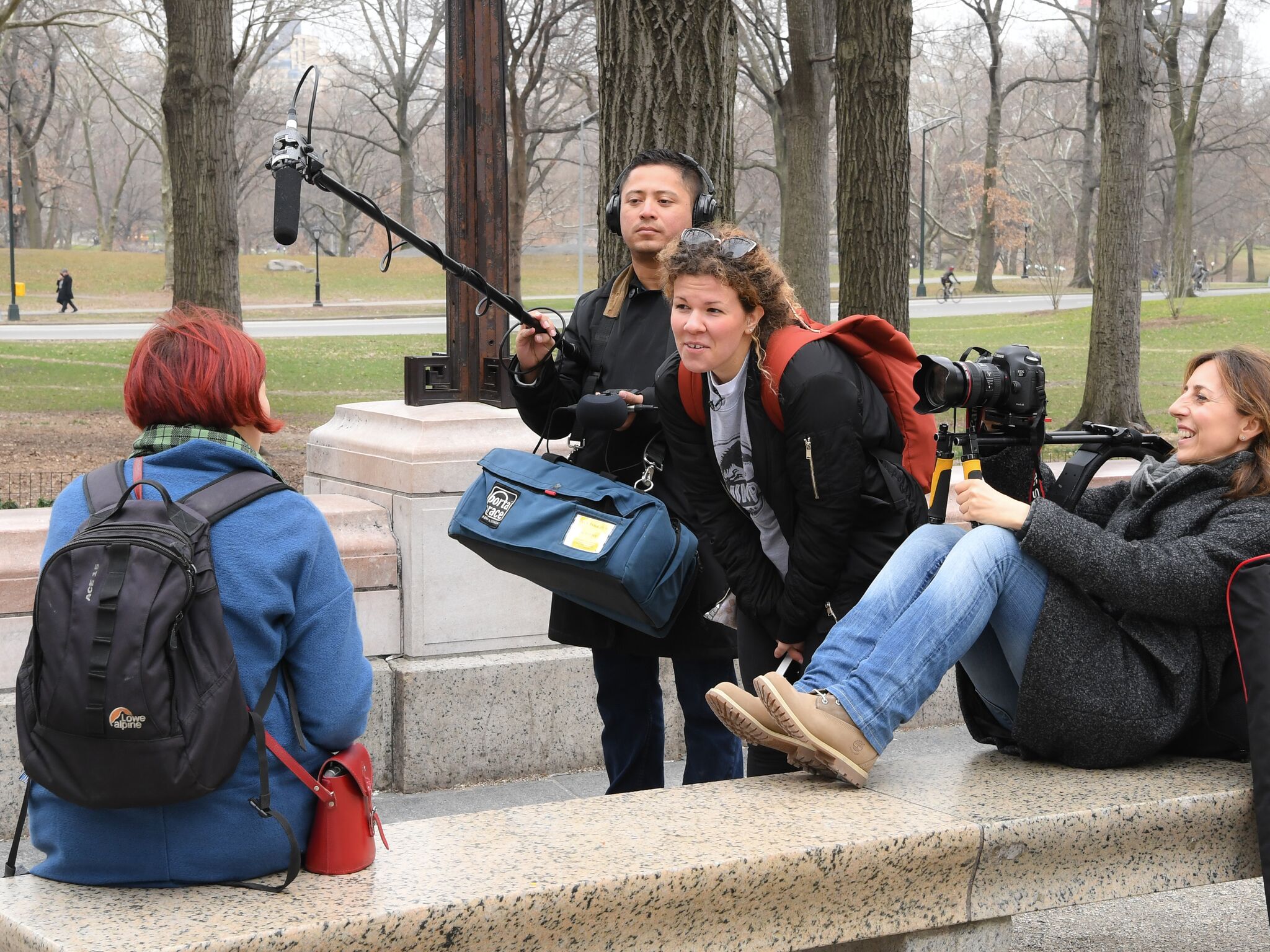
NYFA: Can tell us a bit about your experience studying at the New York Film Academy?
VR: I have participated in countless training courses and workshops throughout my career but attending NYFA was a truly life-changing experience for me. I realized that storytelling and filmography was something I had always wanted to do. I now look back at my earlier years and realize that I did my first photographic story when I was just 10 years old. I was trying to get the local municipality to shut down the slaughterhouse that was located adjacent to our bayside community (even though our family business was a meat shop).
When I was 14 years old I scripted, directed, and shot a short film for a school project about a start-up tour company. My original idea was to produce the trailer of a faux movie involving scenes in the cemetery and a police riot but just getting access to an old VHS camera was enough of a challenge.
There was of course not much hope pursuing a career in the arts at the time, and I knew all too well that my sure bet was to pursue a career in science. The NYFA course made me realize all these things, and that I have always been a person that lives a life worth living. Hence, it enabled me to renew my interest in film and storytelling. It sent me into a phase of extensive reflecting and soul searching.
The experience could only have been possible because of what NYFA is: the location of the school, the facility, the amazing people that I now consider my mentors, and of course such a wide diversity of students. At the expense of my family and our business clients, I neglected every other commitment I had for the entire time I was at NYFA because I wanted to take advantage of every experience and opportunity I had during the course.
I especially enjoyed the hands-on approach of filmmaking that took us to interesting locations across New York and allowed us to really appreciate the fact that everyone has a story tell. Everyone’s story can be pleasantly captivating if we invest the time and creativity to put it together. I think that was my “take home lesson” — we have the ability to capture stories that will inspire others. As storytellers, people seek our storytelling abilities and we owe it to the world to do it right.
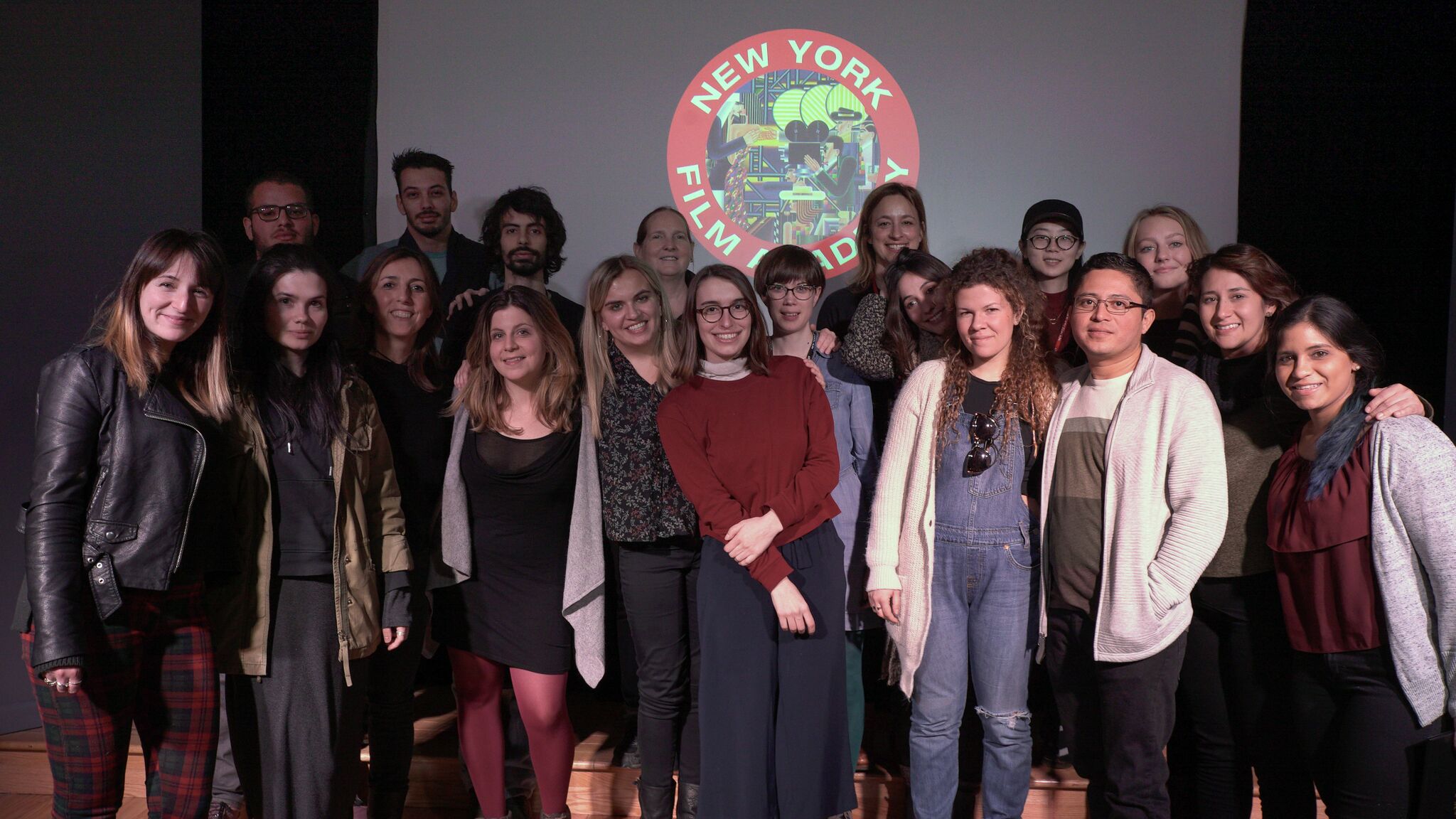
NYFA: How has your time at NYFA impacted and changed your work in Belize?
VR: One of the main effects was that it make me think really carefully about what path my career would take after the course. I wanted to dive into filmmaking but I also knew that it was not realistic to give up my career as a scientist. The scientist in me made me conduct a thorough evaluation of all aspects (self, family, values, etc.) and to refocus our work under our Grassroots Belize banner.
Our mission is to inspire people to improve our world. Once we defined that approach, it cleared the dilemma of scientist or filmmaker or etc. We now take up projects of positivity to promote people living in harmony with nature. Science, business, filmmaking, etc. are various methods in our advantage.
NYFA: What is Grassroots Belize? What is your role there?
VR: I recently founded Grassroots Belize with my wife. It is a private consulting firm, where we now combine our qualifications and experience to work on conservation projects that instill meaningful change for the environment and the communities that depend on them.
We believe that people can live in harmony with nature and we hope to inspire others through our work. We combine our experience in business, science and the arts to work on projects that enhance the sustainability of communities. Our multidisciplinary approach allows us to make connections across traditional boundaries and to develop a unique worldview for innovation. We work on a wide range of projects that aim to improve the environmental performance of natural resource users and the benefits they provide to communities.
I serves as a biodiversity scientist and my wife, Angie, is the administration and finance director.
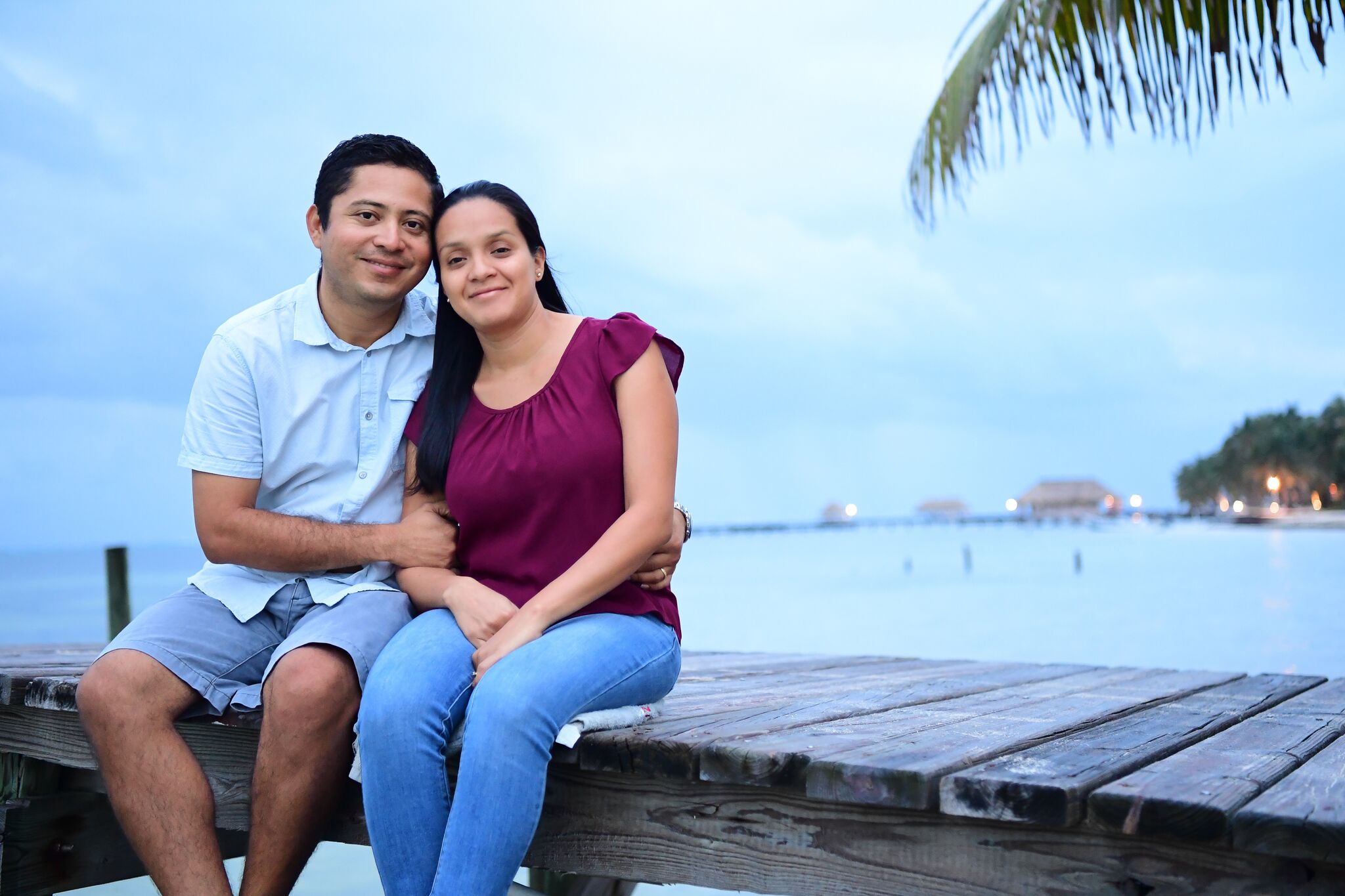
NYFA: You were featured in WWF’s Education for Nature Annual Report. Congratulations! How did this come about?
VR: WWF-EFN works diligently at growing and strengthening their network of grantees (alumni). The network consists of over 2,500 experts in different fields of conservation from all corners of the world. I had the opportunity to participate in the first alumni symposium this past year that brought together over 40 current and past grantees from 17 countries.
I even had the opportunity to document the stories of three grantees and capture the portraits of several of the scientists. One of the most interesting aspect of the experience is that I was very much interested in their stories and considered my story not interesting at all.
Ironically, everyone else seemed to feel the same (super interested in the stories of others and considered their own less important). I guess if we all reflect on it, we will realize that perhaps we should all be open about sharing our own stories in the hopes to inspire others.
NYFA: Has anything shifted for you as a result of WWF’s Annual Report?
VR: Indeed. In my readings I came across literature about human personality. It turns out that the better we are at traits that result in great scientists, the less we are at the traits that define our communication with others. It seems like a challenging paradox for conservation where we invest so much effort into sound science aimed to address unsustainable behavior.
Basically, every alumni I heard from [at WWF’s symposium] confirmed in some way that our research is not having the impact we desire at the community and global level. The experience with WWF, post-NYFA, has reenergized my drive to expand my knowledge and efforts in science, and to complement it with my recent training in storytelling.
Someone has to tell the stories. The difference is that I also understand the science.
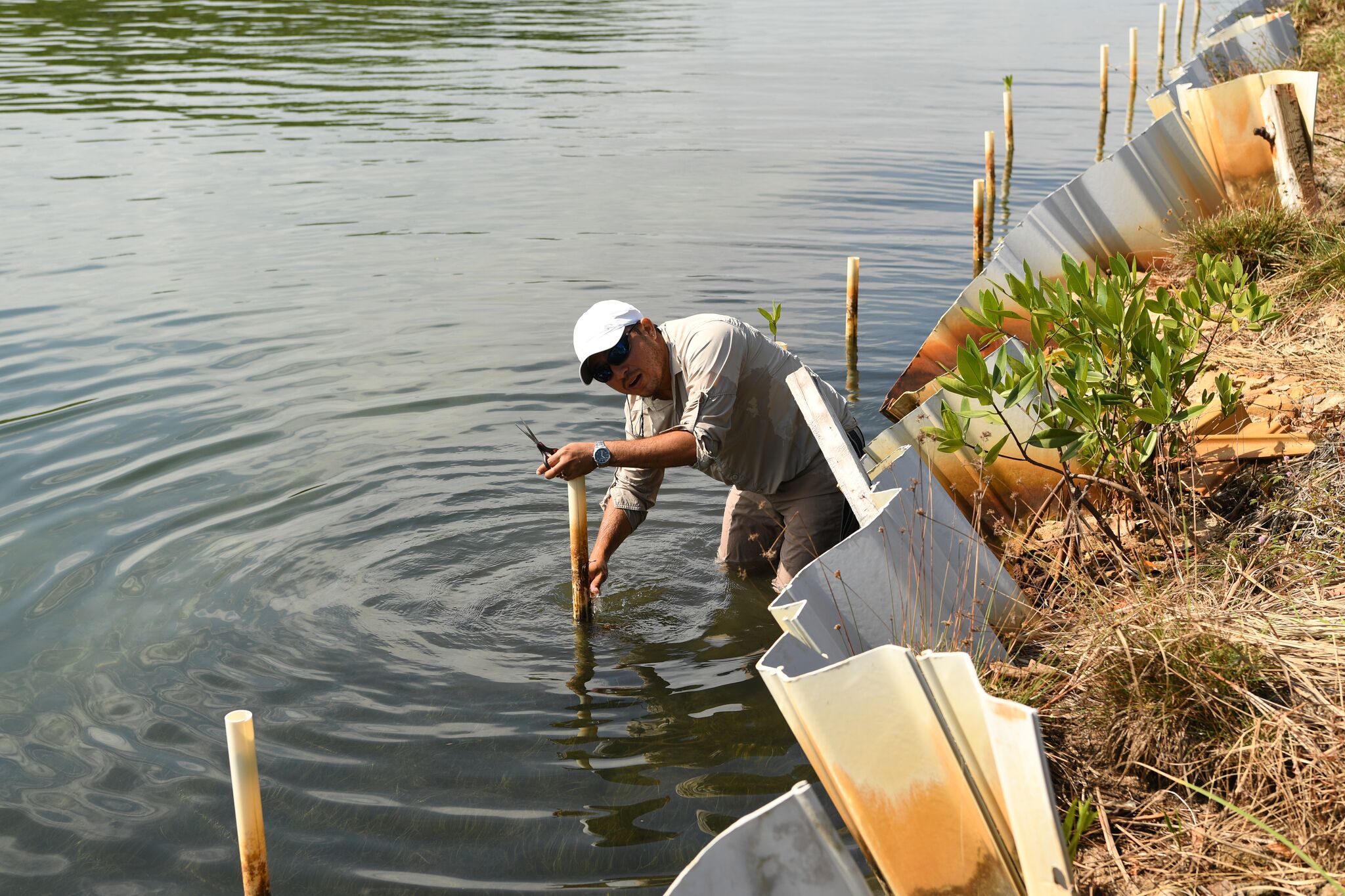
NYFA: What do you most want people to understand about environmental conservation in Belize? How can we help?
VR: I believe that in an effort to bring attention to the issues facing our world we focus heavily on issues and challenges. However, it may result in an atmosphere of constant negativity and sense of helplessness. In the process, we tend to overlook or underestimate the good progress and the good stories around us.
I have always believed that we should be highlighting the stories about people doing their part to improve our world. We have many such stories in Belize and I think that this would inspire others at a global level.
If a small group such as Fragments of Hope can replenish reefs with 90,000+ corals in 10 years (with very limited resources), what would this world be if the global financing for conservation gets directed to initiatives that have this level of direct impact on communities?
My final message would be to follow our stories. We hope they inspire others to improve our world in their own communities, in their own small way.
NYFA: What is next for you? Any upcoming projects we can watch out for?
VR: This past year of training, reflection, strategic planning and welcoming my daughter (thankful for good health and all), made me put several projects on the back burner. Now that our business is focused and we have all this training, we have several exciting projects in our work plan for the year.
The following is a synopsis of 3 short films that I have in post-production and expect to complete in the next few months.
- Sandwatch Belize: children from schools in Placencia participate in hands-on program that assesses coastal erosion of coastal communities. The activities serve as a meaningful incentive to inspire greater learning but not everyone gets to participate.
- Man O’War in Peril: the island was officially protected in 1977 as a bird colony but in recent years, storms have affected the island’s vegetation. Tour guides are concerned that they are about to lose an important tourist attraction.
- Palo Seco Costa Rica: resort owners used mangroves to reinforce their coastline against erosion. In the process, they were able to safeguard their land concession with the government. The success has prompted scaling up of efforts.
Congratulations to Valentine, his family, and Grassroots Belize! Connect with Valentine Rosado on Facebook and follow Grassroots Belize on Facebook.
